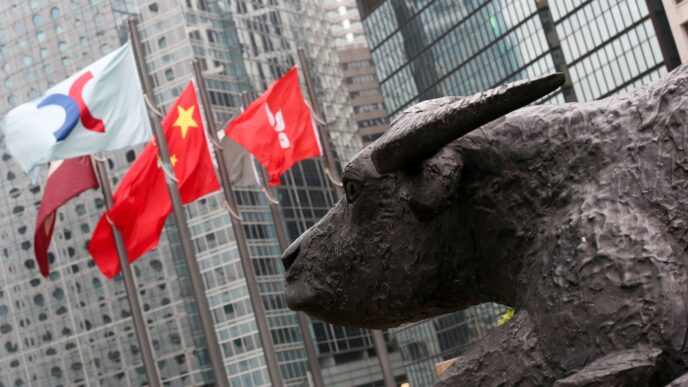The US economy is experiencing a mix of slowed consumer spending and rising inflation ahead of a major tariff rollout on April 2. With President Donald Trump’s trade policies set to take effect, both domestic and international markets are reacting with caution. Canada and other nations have begun adjusting their economic strategies in response to anticipated disruptions.
US Economic Trends:
Consumer spending in February showed only a marginal 0.1% increase, following a January decline that analysts largely attributed to adverse weather conditions. Meanwhile, the core personal consumption expenditures (PCE) price index, which excludes volatile food and energy prices, climbed to 2.8% year-over-year—remaining above the Federal Reserve’s 2% target.
Stock market fluctuations triggered by Trump’s evolving trade policies are adding to economic uncertainty. Economists warn that continued volatility could impact high-income earners, a key driver of consumer spending in the US.
Global Trade Reactions:
- Canada: Already facing US-imposed tariffs, Canada’s economic momentum stalled in February. Retaliatory measures from the Canadian government could drive inflation higher, potentially exceeding the Bank of Canada’s 3% upper target range.
- United Kingdom: Retail sales surged in early 2025, fueled by pent-up household savings from the previous year. Notably, sales of household goods saw a 7% rise—the highest since April 2021.
- Germany: Business confidence reached its highest level since June 2024. Chancellor-elect Friedrich Merz has committed to large-scale infrastructure and defense spending to modernize the economy.
- France: The country’s 2024 budget deficit was narrower than projected, offering the government some financial breathing room amid efforts to reduce national debt.
- India: Officials in New Delhi are considering US demands to lower import duties on agricultural products while negotiating for an exemption from Trump’s upcoming reciprocal tariffs.
- Australia: The government introduced unexpected tax cuts and extended energy rebates in a pre-election budget aimed at addressing cost-of-living concerns and securing Prime Minister Anthony Albanese’s re-election.
Shifting Monetary Policies:
- Mexico: The central bank cut interest rates to 9%, marking its second consecutive half-point reduction amid declining inflation.
- Zambia: The economy outperformed expectations in 2024, with growth driven by a strong mining sector and agricultural recovery after a historic drought.
- Norway: Postponed an anticipated rate cut, while Hungary, the Czech Republic, Sri Lanka, Lesotho, and Guatemala opted to keep borrowing costs steady. Mozambique, Tunisia, and the Central African States all implemented rate reductions.
- Ghana: In a surprising move, the country raised interest rates, diverging from broader monetary easing trends.
US Trade Policy Escalation:
President Trump has taken a more aggressive stance on global trade, signing a proclamation to impose a 25% tariff on auto imports. Additionally, he has threatened harsher penalties against the European Union and Canada should they coordinate opposition to US tariffs. In a controversial move, he also introduced the concept of “secondary tariffs” targeting nations that continue purchasing oil from Venezuela, aiming to disrupt the country’s economic lifelines.
With markets on edge and global economies adjusting to US trade shifts, the coming weeks will be pivotal in determining the broader economic impact of these aggressive policies.














